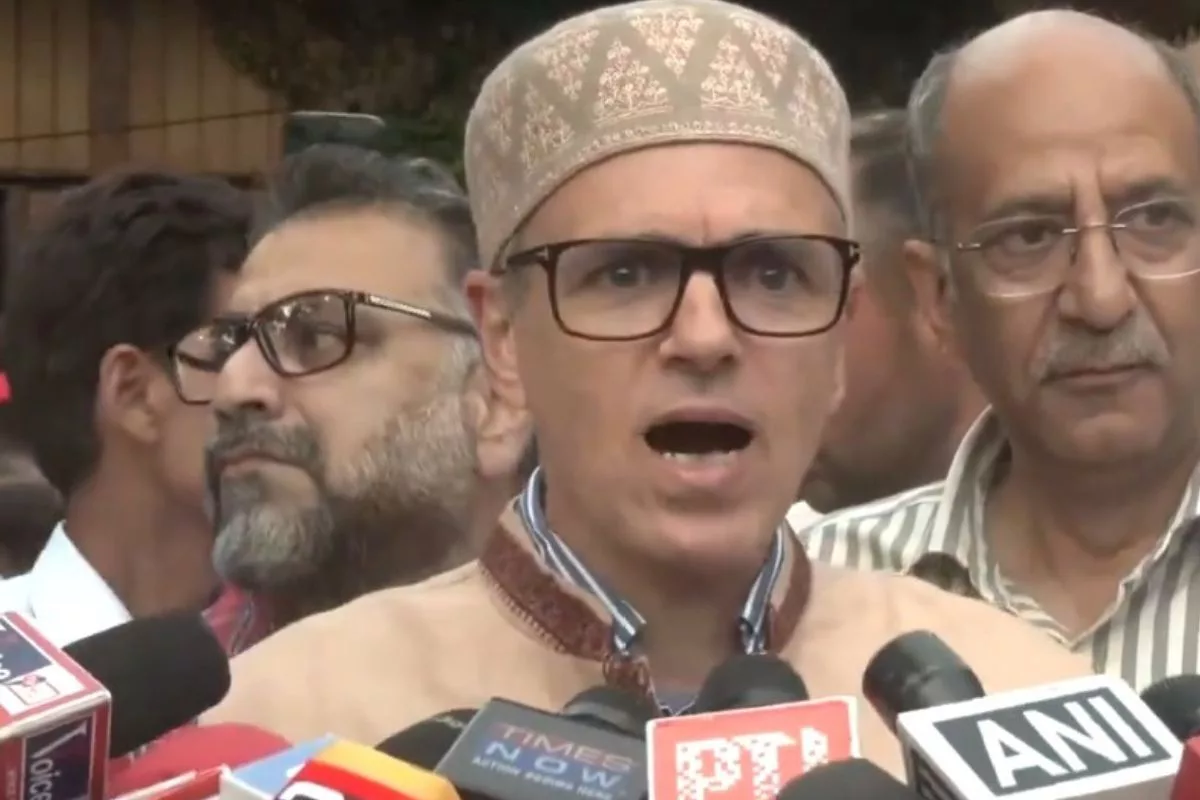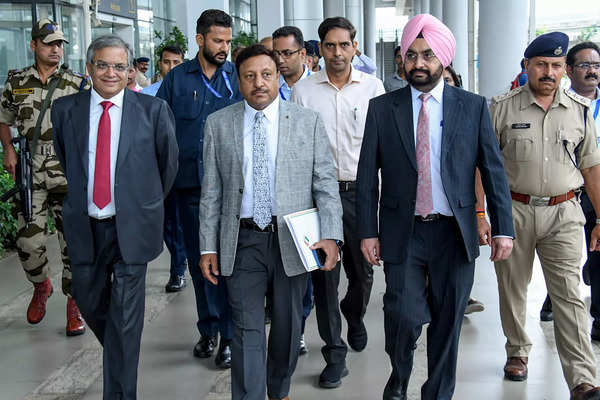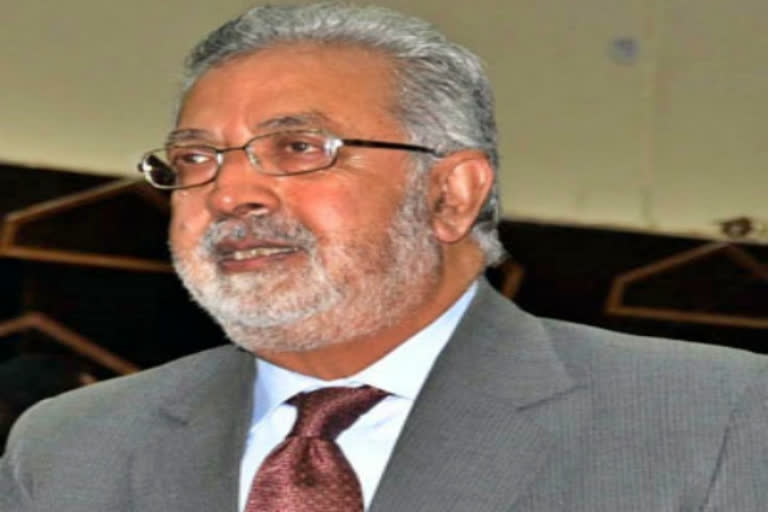‘Give us back our statehood, give us back our dignity.’
By: Javid Amin | 25 Aug 2025
A Long Wait for Statehood
Since the abrogation of Article 370 in August 2019, Jammu and Kashmir has been living in a constitutional limbo. Promises of statehood restoration have been made at the highest levels of government, but five years later, the wait continues. The people of J&K—accustomed to uncertainty but weary of broken assurances—are increasingly impatient.
At the heart of this debate stands Omar Abdullah, Chief Minister of Jammu & Kashmir and leader of the National Conference (NC). With his political legacy tied to the aspirations of the Valley, Abdullah has stepped up pressure on New Delhi and the judiciary. His latest call is directed at the Supreme Court of India, urging it to set a clear and binding deadline for restoring statehood when it hears the matter on October 10, 2025.
This article unpacks Abdullah’s statements, explores the legal and political context, highlights Mehbooba Mufti’s emotional appeal on the issue of Kashmiri prisoners, and examines the broader implications for democracy, governance, and the everyday lives of Kashmiris.
The Demand for Statehood: Abdullah’s Core Argument
A Resolution in the First Cabinet Meeting
One of Omar Abdullah’s first official acts as CM was to pass a cabinet resolution demanding the restoration of statehood. The resolution was forwarded to the Prime Minister, signaling that this issue was not a distant priority but an urgent necessity.
“We did not wait for months. From our very first meeting, we said statehood is non-negotiable,” Abdullah emphasized.
This political move reflected both public sentiment and a desire to differentiate the NC government from the Lieutenant Governor’s administration, which had governed under Delhi’s direct control since 2019.
The Supreme Court’s Role: Setting Deadlines
Abdullah reminded the public that elections in Jammu & Kashmir only became possible after the Supreme Court intervened and set a timeline. Without judicial intervention, he argued, political processes would have continued to be delayed indefinitely.
“Why must we wait endlessly for statehood? The court has the power to compel urgency. We hope it uses that power again,” he said.
This raises an important question: Can the judiciary force the executive to act on a political promise? Legal experts believe that while the SC cannot dictate policy, it can direct the Centre to honor its own commitments, especially given its December 2023 verdict where it stated that statehood must be restored “as soon as possible.”
The Frustration of Delay
Disappointment Over SC’s Refusal to Advance Hearing
The October 10 hearing date has itself become controversial. Abdullah called the refusal to bring the matter forward “unfortunate,” noting that every delay chips away at public trust.
For ordinary Kashmiris, delays translate into uncertainty—in governance, in investments, in daily administration. Many feel caught in limbo: neither enjoying the full protections of statehood nor fully integrated into India’s Union system.
Terrorism and the Statehood Debate
One of the most controversial aspects of the SC’s stance is its decision to consider the April 2025 Pahalgam terror attack, which killed 26 civilians, in the context of statehood restoration.
Abdullah criticized this linkage sharply:
“Will terrorists decide our future? If every act of violence is used to delay democracy, then the enemies of peace have already won.”
His point resonates: tying democratic rights to the actions of terrorists effectively gives extremists a veto over governance.
The Kashmiri Prisoner Dilemma
Beyond statehood, Abdullah also addressed the sensitive issue of Kashmiri prisoners jailed outside the region.
Public Outcry Over Detainees
Families across Kashmir have long protested the transfer of detainees to jails in Uttar Pradesh, Haryana, and other states. Many complain of difficult travel, poor conditions, and denial of parole.
The issue has become emotional and political—a symbol of alienation and perceived injustice.
Abdullah’s Position
Abdullah was candid:
“Security decisions are made in Delhi, not Srinagar. Protests here will not bring prisoners home. Leaders must raise this issue directly with the Home Ministry.”
This reflects both political realism and a subtle passing of responsibility to Mehbooba Mufti and other opposition leaders.
Mehbooba Mufti’s Emotional Appeal
Mehbooba Mufti, president of the People’s Democratic Party (PDP), countered Abdullah with a highly emotional and politically charged statement.
The Protest in Srinagar
Leading a peaceful protest, Mehbooba demanded the return of Kashmiri prisoners to local jails. She highlighted individual cases, including a Pulwama youth jailed for 10 years without conviction, stressing that many prisoners are denied parole and basic legal rights.
Her message was deeply personal:
“Let’s keep politics aside… I request Omar sahib, not as a politician but as a mother, a sister and a daughter.”
By framing the issue as a humanitarian crisis rather than a political one, Mehbooba sought to outmaneuver Abdullah in the battle for public sympathy.
Her Call to Action
-
Proposed an all-party delegation to visit prisons.
-
Demanded a direct meeting with Amit Shah.
-
Urged Abdullah to lead the charge rather than dismiss protests as symbolic.
Abdullah’s Sharp Response
Omar Abdullah, however, was dismissive:
“If she is doing it just for show, let her continue,” he remarked.
He reiterated that Delhi holds the reins and that local protests, however emotional, will not change security policy. This blunt response highlights the pragmatic vs. emotional divide in Kashmiri politics: Abdullah stresses realism and procedure, while Mehbooba emphasizes emotion and grassroots empathy.
Political Implications
The Abdullah–Mehbooba exchanges are not just about policy—they are about positioning ahead of future elections.
-
Omar Abdullah wants to appear as the responsible statesman, pushing within constitutional channels like the Supreme Court.
-
Mehbooba Mufti seeks to reclaim her image as the voice of Kashmir’s pain, standing with ordinary families and prisoners.
Both are competing for the same disillusioned electorate, which feels betrayed by Delhi and let down by local leaders.
The Bigger Picture: Delhi, Democracy & Kashmir
At its heart, this debate reflects a larger paradox:
-
Delhi insists J&K’s integration is complete, yet withholds statehood.
-
Leaders like Abdullah and Mehbooba demand rights but remain dependent on Delhi’s approval.
-
The Supreme Court stands as the only arbiter capable of setting deadlines, yet risks being seen as too deferential to the executive.
For the common Kashmiri, these legal and political battles translate into daily struggles—whether it is delayed recruitment, curtailed local decision-making, or the pain of having a son jailed hundreds of kilometers away.
Bottom-Line: October 10 as a Defining Moment
As the Supreme Court prepares to hear the statehood case on October 10, the stakes could not be higher. For Omar Abdullah, it is a chance to prove that judicial pressure can deliver what politics has failed to achieve. For Mehbooba Mufti, it is an opportunity to keep human suffering at the center of the debate.
Ultimately, the people of Jammu & Kashmir are tired of waiting. Whether through Delhi’s benevolence, the Supreme Court’s intervention, or local political mobilization, the demand is the same:
“Give us back our statehood, give us back our dignity.”



